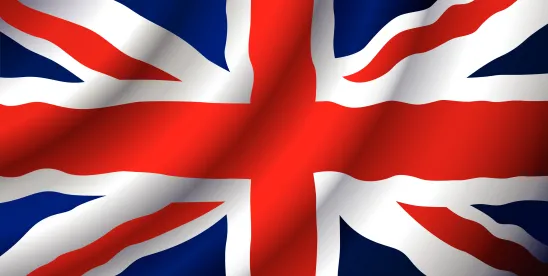A big UK summer of women’s sport is upon us. Tennis kicked things off, with Tatjana Maria becoming the first woman since 1973 to be crowned champion at the illustrious Queen’s Club. Wimbledon is about to begin, quickly followed by the Women’s Euros, the home Women’s Rugby World Cup, and the Cricket World Cup, amongst other domestic and international sporting fixtures.
As excitement is building for the performances to come, expectation mounts for the potential impact this long sporting summer can have on the growth of women’s sport. While the increased spotlight on women’s sport is welcome, we are also reminded of the all-too familiar toxicity that must be navigated in the pursuit of these objectives. Fans of women’s sport have grown accustomed to greater access and insight into the lives of female athletes, many of whom use social media to raise their personal profile and that of their respective sport (and, in turn, to generate supplemental income). But such increased attention heightens the risk of targeted abuse, which often appears to be rooted in sexism and misogyny.
In the past few weeks alone, we have seen the threatening messages tennis that star Katie Boulter regularly receives[1] and heard from England’s Lioness players who are choosing to avoid social media during the Euros due to damaging online abuse becoming the norm.[2] World Rugby has announced that it is stepping up protection of female players, including by tackling abuse that has already been detected ahead of the World Cup.[3] There are also many examples of female family members (and children) of male athletes being the targets of similar abuse.[4].
Sadly, abuse is not confined to the online realm, as the recent chilling experiences of Emma Raducanu exemplify. Security provisions for the forthcoming Wimbledon Championships reportedly have come into sharper focus this year, and have already blocked from the public ballot a man who was given a restraining order for stalking Ms Raducanu. An estimated 1,000 personnel are expected to support security efforts across the Championships, including police and military personnel, fixated threat specialists and behavioural experts who are trained to spot strange behaviour.[5]
In this context, we reflect on the discussion and learnings from the panel discussion on Protecting the Welfare of Female Athletes and Confronting Misogyny at the second Squire Patton Boggs Women’s Sport Symposium, which took place earlier this year. The panel focussed on the themes of safeguarding, welfare, misogyny and abuse in women’s sport, providing insight from expert speakers Yvonne Nolan (General Counsel, World Rugby), Dr. Emma Kavanagh (Associate Professor in Sport Psychology and Safe Sport, Bournemouth University), Gary Bye (Former Safeguarding and Player Care Manager, International Tennis Federation) and Georgia Relf (Sports Account Manager, Signify), moderated by Dr. Katie Smith (Associate, Squire Patton Boggs).
Broadening Scope of Safeguarding
The IOC consensus statement on safeguarding and interpersonal violence in sport[6] is demonstrative of the shift away from safeguarding being focused solely on children and vulnerable adults. There is a wider notion of safe sport. This is for all in the ecosystem, meaning athletes of all ages and levels but also family members, officials, coaches, staff and volunteers, and fans. This broadening is important but brings its own challenges to sports governing bodies and other stakeholders to ensure that appropriate steps are taken to protect the welfare of those categories of individuals.
In turn, there is a recognition that support across a broader range of areas is required. This was highlighted in the expanded definition of Duty of Care promoted and explored in Baroness Tanni Grey-Thompson’s 2017 Independent Report to Government: “covering everything from personal safety and injury, to mental health issues, to the support given to people at the elite level.”[7] Increasingly, there is a need to consider threats from the online arena, with athletes and others involved in sport becoming the targets of abuse on social media platforms.
In terms of women’s sport, there are the additional factors of sexism and misogyny at play. These are societal problems that find their way into sport, with hatred and contempt for women being displayed through abusive behaviours in both physical and virtual spaces. Dr Kavanagh considers that such behaviours as forms of gender-based violence and has co-authored studies investigating the subculture of misogyny within women’s football[8] and gender-based violence targeting high-profile women in tennis.[9] Abuse often targets female athletes’ physical appearance or other personal attributes, with notable correlation to betting activity (i.e. gamblers who have lost bets).[10]
Prevention, Support and Response
Safeguarding in sport is about risk. To prevent harm occurring, sports must properly assess that risk and have wide-ranging and effective policies and procedures that are implemented at all levels. To ensure that such policies are appropriately tailored and strictly adhered to can be a challenge for international governing bodies with member associations, athletes and other stakeholders in various different jurisdictions.
Sports governing bodies and athletes themselves are increasingly investing in services such as those offered by Signify, an ethical data science company, in order to identify the problems, investigate and take action. In addition to internal disciplinary and other regulatory processes, there are legal actions (both civil and criminal) that can be taken against those responsible for abuse, including private prosecutions, defamation claims, injunctions to prevent harassment, and non-molestation orders.
Sports must ensure that easy access to reporting is available, with both formal and informal channels open, providing victims with the best possible chance of reaching out for help and preventing further harm. Education is also important so that athletes are fully prepared and can identify risks and low-level behaviours before they escalate. This would include training for content creators around the risks associated with social media, which is especially important for female athletes who are looking to build and exploit their personal brand. Women’s sport teams and athletes are dominating digital platforms,[11] providing important opportunities for growth, income and investment, but it must also be recognised that this profile-raising could leave individuals more exposed to abuse.
Importance of supporting female athletes
When athletes are not kept safe, there is an impact on performance. The potential harmful effects are shown by recent examples, such as Khadija ‘Bunny’ Shaw withdrawing from the Manchester City Women FC squad after suffering misogynistic and racist abuse,[12] and Emma Raducanu, who stated how she “couldn’t see the ball through tears… [and could] barely breathe” after being targeted by a stalker who “exhibited fixated behaviour”.[13]
As articulated in Baroness Tanni Grey-Thompson’s Report,
“The success of sport, in terms of helping people achieve their potential, making the most of existing talent, and attracting new people to sport relies on putting people- their safety, wellbeing and welfare- at the centre of what sport does.”
This feeds into what Baroness Karen Carney described as the “virtuous cycle” in the context of women’s football:
“Meaningful progress in these areas are crucial in catalysing the virtuous cycle of investment which can support the organic growth of women’s football. As players are nurtured and developed in an increasingly elite performance and welfare environment, on pitch standards will continue to improve, bringing in larger audiences and unlocking new investment from broadcasters and commercial partners.”[14]
At this important time for the growth and commercialisation of women’s sport, it is in everyone’s interests for standards in these areas to be developed and prioritised.
Ideas for the future
The panel also explored improvements that could be made in this area. Better intelligence-sharing both within and across sports is at the top of the list. This would seek to (i) disrupt bad actors moving around a sport in different roles and jurisdictions and between different sports; and (ii) allow best practice to be shared and work for the benefit of all. Support is also needed from those outside of sport, for example social media companies, to assist in identifying wrongdoers and preventing further abuse. Such efforts would of course benefit athletes of all genders, and the authors note that issues of abuse do not solely impact women (although gender can play a role in how abuse manifests).
Sport has a real opportunity to work together and join forces in tackling these societal issues, ensuring that women are protected, supported and allowed to flourish.
[1] Katie Boulter: British tennis player reveals social media abuse she has received – BBC Sport
[2] Alessia Russo: ‘Social media could be really damaging during Euros’ – BBC Sport
[4] For example: https://www.bbc.co.uk/sport/football/articles/c1kmn7jjvkjo and https://www.bbc.co.uk/sport/football/articles/cr4zzn412gyo
[5] https://www.bbc.co.uk/sport/tennis/articles/c74zjj14xvyo
[7] Microsoft Word – 170419 Duty of Care Review – Final version .docx
[10] https://www.bbc.co.uk/sport/tennis/articles/cj42rvdk2k4o
[14] Raising the bar – reframing the opportunity in women’s football – GOV.UK




 />i
/>i

